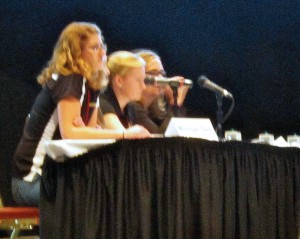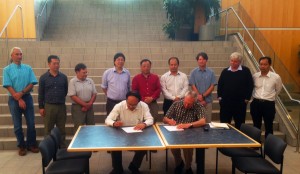
The Michigan Tech student chapter of The Wildlife Society had an excellent performance in the quiz bowl competition at The Wildlife Society 2013 Annual Conference, coming in fourth out of seventeen teams. They were very nearly third, and played Humboldt State (2nd place & very tough) which is a success by most participants standards. They beat Purdue in the 1st round, SUNY Cobleskill in the 2nd, lost to Humbolt in the 3rd, and barely lost to University of Tennessee in the deciding match for 3rd-4th place.
 We are proud to be welcoming
We are proud to be welcoming 